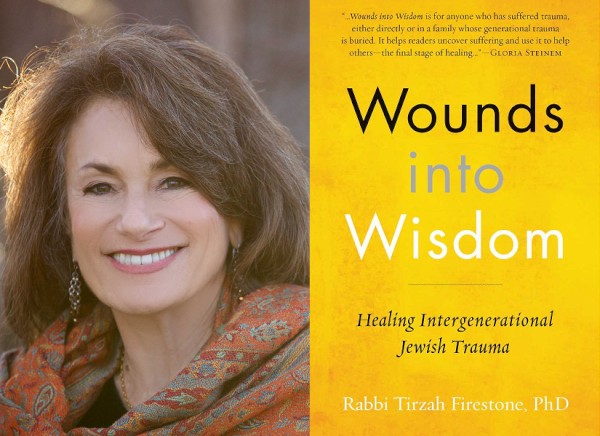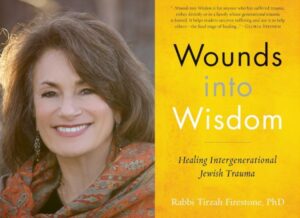
Rabbi Firestone Opens My Eyes on Holocaust Trauma Inherited by Future Generations
The solution is to do what many Jews already do—channel that pain into easing the suffering of others.

My Publishers Weekly interview with Rabbi Tirzah Firestone was an eye-opener to me inherited Holocaust trauma because it helped me fill in the gaps on why anti-Semitism anywhere in the world has such an impact on me. When I read about anti-Jewish violence or bigotry, I do feel like it’s happening to me, personally, even if it’s halfway around the world to people I do not know.
In our interview, we talk about how descendants of Holocaust survivors inherited the trauma, and how we can channel it productively. This hit home for me.
The phenomenon is real—kids, grandkids of Holocaust survivors suffer from extreme stress.
The solution is to do what many Jews already do—channel that pain into easing the suffering of others. Yes, she used the words “Tikkun Olam,” which causes many an eye-roll these days because it is an overused expression. But, you know, I have no problem with the idea of repairing the world and making it a part of your own private Judaism. I’ll explore Tikkun Olam more in future posts.
For Firestone, though, doing things for other people, picking “Jewish” professions like medicine, social work, is all part of healing from this genetic memory of suffering.
“The main point is that that we can’t change past events, but we can change the outcome of those events. And we can’t change tragic history, but we can choose the legacy that we want to pass on,” Firestone said.
Read the whole interview, linked below.
Rabbi Examines Inherited Holocaust Trauma
In August 2017, when neo-Nazis rallied in Charlottesville, Va., Rabbi Tirzah Firestone received calls from her worried congregants in Boulder, Co. who, perhaps for the first time in their lives, felt personally victimized by Nazis. They couldn’t sleep at night. It seemed to them it was happening all over again. More here